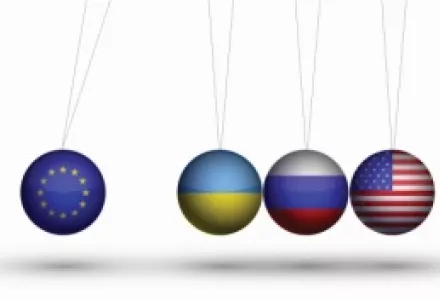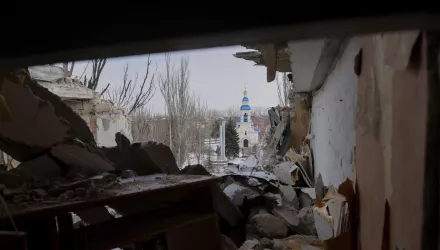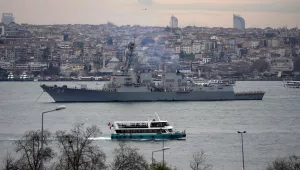This seminar assesses the relationship between the West and Russia as the sum of great power reactions to the Ukrainian crisis and, specifically, the annexation of Crimea. Despite agreement on a no-business-as-usual principle, important national nuances stand out stemming from different historical bonds to Eastern Europe/Russia (Germany, Poland, and to some extent the United States) or different interests in the region (France, United Kingdom). The collective response reflects the lowest common denominator on three major issues: readjustment of the relationship with Russia and institutional responses (EU, NATO) to the changed Eastern neighborhood.
The Ukrainian crisis must be managed as a predominantly political-economic conflict with Russia responding to an erosion of its influence in the common neighborhood with the EU. Western sanctions so far have not proven to curb Moscow's dispositions; nor will any strengthening of NATO's eastern posture make it change course in Ukraine. Policy must focus on the use of the EU's powerful reform impetuses to move Ukraine beyond perpetual stagnation and state failure. Strategy must envisage Ukraine as an entity that links rather than divides Europe and Eurasia by alleviating Kiev's strong geo-economic affiliation dilemma, which caused the crisis to erupt in the first place.
Please join us! Coffee and tea provided. Everyone is welcome, but admittance will be on a first come–first served basis.
It is recommended that seminar attendees arrive before 12N, use the Belfer building entry at the corner of JFK Street and Eliot Street, and bring your lunch as the cafeteria will be closed.



